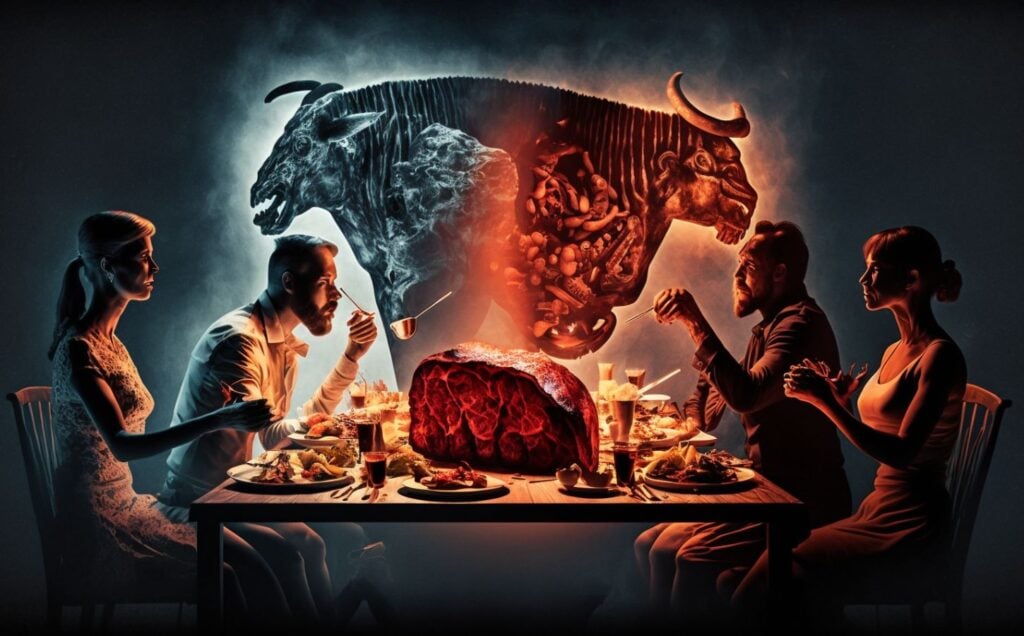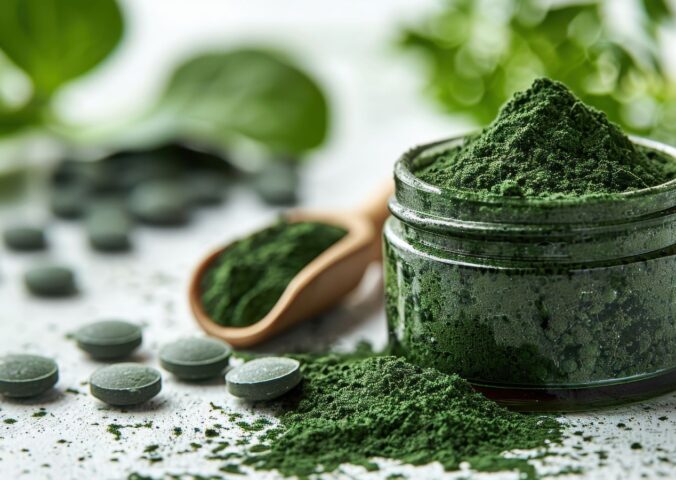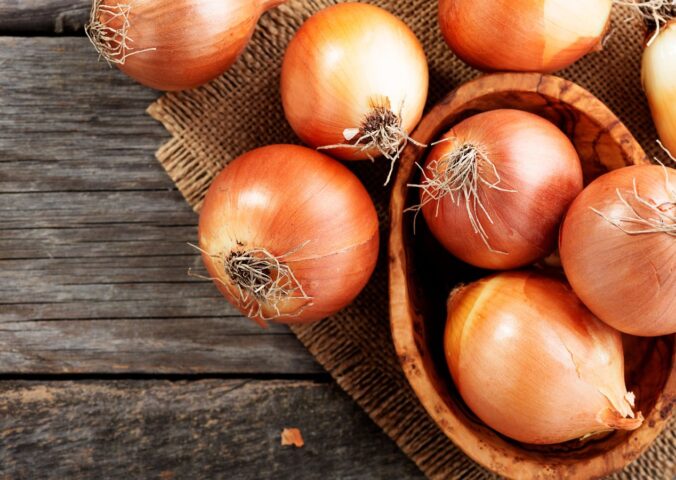The so-called “carnivore diet,” sometimes known as the “lion diet,” has been dividing the internet for years. Some swear by the high-protein, low-carb lifestyle, claiming it provides various health benefits. Meanwhile, a growing bank of research warns against the “fad,” stressing that eating only meat and other animal products could be doing the body more harm than good.
So what is the carnivore diet? Is it actually healthy, and what are the risks? Here’s what you need to know.
What is the carnivore diet?
The clue’s in the name regarding what the carnivore diet entails. Those following the carnivore diet eat only meat, including poultry and fish, and some may eat eggs and dairy products. Organ meats, bone marrow, and lard are also allowed.
All plant-based foods – including fruits, vegetables, legumes, nuts, and seeds – are excluded from the carnivore diet. Grains, including bread and pasta, and alcohol are also not permitted.
How is it different to keto?
The ketogenic or “keto” diet has seen a similar rise in popularity in recent years. Keto-friendly foods are those that are low in carbohydrates and high in fat. The drop in carbohydrate intake puts the body into a metabolic state of ketosis. During this state, the body becomes more efficient at burning fat for energy, which can lead to weight loss.
People following a keto diet usually consume a lot of animal products, including fatty meat, eggs, cheese, and butter. They do not eat fruit, beans or legumes, grains, and some vegetables. They can, however, eat “low-carb” vegetables like tomatoes, as well as avocados, nuts, and seeds.
How is it different to paleo?
The paleo or “caveman diet,” on the other hand, allows fresh fruits and vegetables, but encourages “grass-fed” meat and “wild seafood.” Further, it does not allow added sugars, dairy, grains, or legumes.

Why is the carnivore diet popular?
A great deal of the carnivore diet’s spike in popularity can be put down to Mikhaila Peterson.
A string of chronic health complications led Peterson to, what she calls “the Lion Diet,” in December 2017. She maintains that eating only meat reversed her rheumatoid arthritis, psoriasis, depression, and anxiety, among many other conditions.
It’s these reported improvements that inspired Peterson’s father Jordan, a controversial Canadian psychologist with over six million Instagram followers, to also try the meat-only diet.
“He’d seen the profound changes in me and even though he didn’t understand how it was possible, he tried it for his depression, GERD, fatigue, and gum disease,” Peterson writes on the Lion Diet website, a brand she founded to promote the lifestyle. “[My father] had resolved all those and lost 60 pounds.”
In 2018, Jordan appeared on the Joe Rogan Experience Podcast, which at the time was averaging around 100 million downloads a month. Jordan had been on a “pure carnivore diet” for two months (for him, that was beef, salt, and water) and a “modified” carnivore diet (with “greens,” such as cucumber and lettuce) for around a year.
Jordan explained to host Rogan that following the strict meat-heavy diet cured his psoriases and helped stop his snoring. Since he had cut out the cucumber and lettuce, he reported daily improvements in his anxiety.
Joe Rogan and the carnivore diet
Jordan isn’t the only proponent of the meat-centric diet to receive airtime on Rogan’s podcast. Rogan has also interviewed former orthopedic surgeon Shawn Baker, who penned a 2019 book called The Carnivore Diet. It includes “real-world transformations,” advice for going plant-free, and according to the book’s description, “breaks just about all the rules.” In 2017, the New Mexico Medical Board revoked Baker’s medical license. This was due to a “failure to report adverse action taken by a healthcare entity and incompetence to practice as a licensee,” the report says.
Podcaster Rogan, who has a collective 50 million followers across his social media pages, has revisited the carnivore diet multiple times since these interviews. In January 2020, the controversial host announced he was adopting an all-meat diet for 30 days. Over the next month, Google searches for “carnivore diet” skyrocketed to an all-time high.
What happened to Joe Rogan’s carnivore diet?
After the 30-day trial was up – during which time Rogan ate elk, cow, moose, bear, deer, salmon, and pig meat – Rogan wrote on Instagram that “lots of aches and pains went away.” He also reported “improvements in vitiligo” as well as changes in his weight.
He also disclosed he’d experienced “explosive” diarrhea for around two weeks.
Since then, Rogan has returned to a more conventional diet that includes plant foods, but appears to circle back to meat-only on occasion.
Celebrities on the carnivore diet
Musician James Blunt has tried the meat-only diet, too. He claimed it was a bid to prove his “manliness” and take a hit at vegans and vegetarians. The plan didn’t pan out though, since he developed scurvy shortly after.
Alongside celebrity interest, some predict the popularity of the carnivore diet comes down to its simplicity.
What does the carnivore diet do to the body?
Weight loss is one of the chief reasons people have shown interest in the controversial eating plan. Protein is highly satiating, meaning people feel fuller quicker. Additionally, due to the diet’s limited and often repetitive food options, it’s less likely that those adhering to it will exceed their recommended calorie intake. As such, some people report weight loss on a carnivorous diet.
It’s also possible to enter a state of ketosis on an all-meat diet, Registered Dietician Kelly Schmidt tells Everyday Health. However, the opposite can also happen. “In excess, protein can lead to an increase in blood sugar and insulin levels, and it can kick you out of ketosis,” she adds.
Carnivore diet: health benefits
There is not a huge amount of research into the impact of meat-only diets. There are strict ethical guidelines in place for such research, and placing participants on such limited dietary plans is unlikely to pass requirements. As such, a majority of the evidence linking an all-meat diet to health improvements is anecdotal.
‘The Harvard Study’
However, one 2021 study has become a favorite of the carnivore diet community. In it, researchers connected to Harvard questioned 2,029 “carnivores” via a social media survey. Curiously, respondents largely reported high satisfaction of their all-meat diets.
“Contrary to common expectations, adults consuming a carnivore diet experienced few adverse effects and instead reported health benefits and high satisfaction,” researchers said.
They warned that the findings should be “interpreted cautiously” due to “several major design limitations.” In particular, the study relies on self-report data, and does not “objectively assess diet, nutrient status, health-related outcomes, or confounding health-associated behaviors; and no physiological or biochemical measurements were obtained.” Further, the study authors noted that individuals “who experienced adverse effects or lack of health benefits are likely to have abandoned the diet and would therefore not have been captured in this survey.”

In addition, the article discloses some involvement by Baker (the former surgeon and author of The Carnivore Diet). In the acknowledgements, researchers “thank [Baker] for input in developing the survey instruments, online distribution of the survey, and critical review of the manuscript.”
Registered Dietitian and Nutritionist (RDN) Krutika Nanavati maintains that any perceived health improvements of the carnivore diet are not down to meat-eating itself.
“The only reason people may notice changes like weight loss or any kind of improvement while following this diet is due to the fact that they would have cut out on eating refined carbs, sugar, and processed food they would otherwise be eating,” she tells Plant Based News (PBN), adding that this itself would “naturally reduce their inflammation and increase energy levels.”
Health risks
Nutritional deficiencies
On a meat-only diet, the body must source all of its nutrients from animal-based foods. However, this is easier said than done. “Without the consumption of fruit and vegetables, the body will be highly deficient in essential vitamins and minerals,” Nanavati explains. “There are higher chances of cardiovascular diseases, increased blood pressure, constipation, and other chronic illnesses that come along with vitamin deficiency.”
1. Fibers
One example is fiber. Dietary fiber usually refers to the parts of plants that can’t be digested in the upper digestive system. It can only be obtained from plant-based foods, and without it, the human body can’t function to the best of its ability.
There are multiple kinds of fiber that offer various health benefits, none of which are found in animal products. For instance, beta-glucan is a prebiotic that stimulates the growth of beneficial bifidobacteria, resulting in improved colon health. It can be found in oats and barley, as well as whole-grain wheat and rice. Pectins – found in fruits like oranges, apples, bananas, and berries – also promote beneficial bacteria growth in the colon, and can help prevent colon cancer.
Additionally, inulin is found in garlic, onion, bananas, and asparagus, and helps ease constipation and assists the body in absorbing magnesium and calcium. Meanwhile, seeds like flaxseeds and cereal grains are rich in lignans (which may help fight off heart disease and breast cancer), although most plant foods contain them.
Generally speaking, high fiber intake is linked to lower cholesterol. Fiber-rich diets could also reduce the risk of constipation, heart disease, and colon cancer.
2. Vitamin C
In addition, vitamin C is extremely difficult to obtain without consuming plants. There is next to no vitamin C in cooked meat, so those on a carnivore diet would need to consume “fresh” or organ meat, such as raw liver and kidney, to get sufficient amounts of it.
Without vitamin C, one is prone to scurvy, poor wound healing, loss of teeth, and mood problems, research says, among other health obstacles. Vitamin C also helps the body absorb iron – nutritionists recommend pairing iron-rich foods with vitamin C to get the best results.
3. Vitamin E
Most meat products are low in vitamin E. However, some do contain it, such as goose and snail meat. These offer 16 percent and nine percent DV of vitamin E per serving, respectively. In contrast, many plant foods offer high amounts of the vitamin. Sunflower seeds (66 percent DV per serving), almonds (48 percent), hazelnut oil (43 percent), and sunflower oil (37 percent) are some examples.
Vitamin E is linked to improved vision, as well as good reproductive and brain health. It’s a powerful antioxidant that supports the immune system. Moreover, without vitamin E, the body cannot efficiently use vitamin K, which assists with blood clotting, bone health, and blood calcium levels.
Increased risk of disease
Potential deficiencies aside, eating high amounts of animal protein could also increase disease risk. In fact, researchers have found that even small amounts of meat can lead to negative health consequences.
“A carnivore diet is high in saturated fat, sodium, and cholesterol – almost everything that is harmful to the heart. Sodium and saturated fat put a lot of pressure on the heart by narrowing its arteries,” Registered Dietitian Wendy Lord tells PBN. “Not eating fruits, vegetables, nuts, and beans significantly increases the risk of hypertension, heart attack, and other cardiovascular diseases.”
Lord adds that high meat intake could lead to digestive problems, prostatitis, and urinary tract infections (UTIs).
Kelsey Kunik, RDN and nutrition advisor for Zenmaster Wellness, echoed this sentiment. “I would never recommend a carnivore diet,” Kunik told us. She added that “completely removing plants from the diet is a recipe for disaster.”
Kunik points to a 2019 study on meat consumption and disease. Researchers collected data on more than 50,000 women and 27,000 men over an eight-year period. They found that increasing red meat intake by just half a serving per day increased the mortality rate of cardiovascular disease and cancer by 10 percent.
“Not only does eating too much meat increase the risk of heart disease and cancer, but it also significantly increase the risk of malnutrition and stomach disease, as you’re missing essential nutrients provided by plant foods,” she adds.
RDN Katie Tomaschko Tout shared similar thoughts. “This diet is horrible for your health and should be avoided – in my professional opinion,” they noted, adding the fiber found in plant foods offer “cardioprotective and cholesterol-lowering benefits which you are missing out on [on a carnivore diet].”
Can you get too much protein?
Too much protein can be of detriment to the body. RD Lord explains that high protein intake places additional stress on the kidneys and liver, and can lead to kidney stones and fatty liver disease. Consuming too much protein may also be associated with increased cancer risk and overall mortality, research suggests.
—
See here for more educational health and nutrition content. And head here for health-related news and similar content






